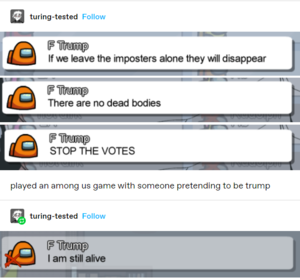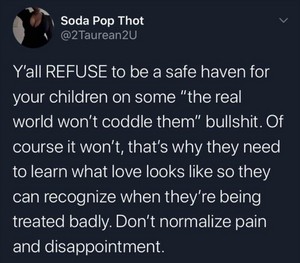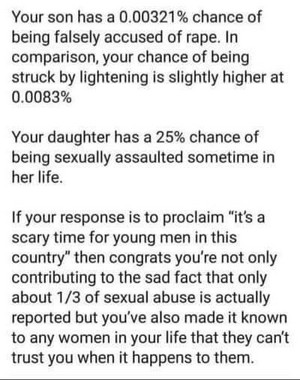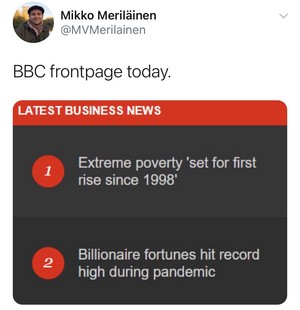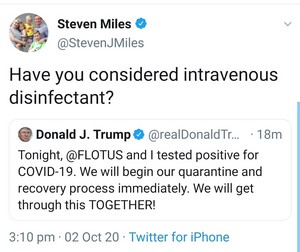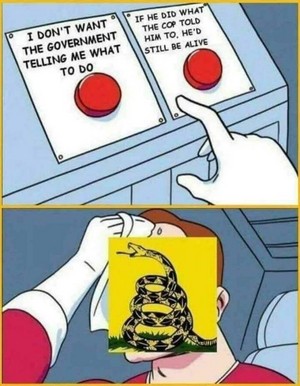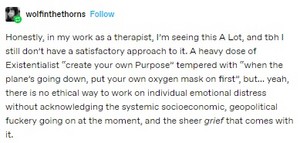On and off for the past several years, I've been working on a bunch of artikel-artikel here on Fanpop: interviews (so many interviews....), comic articles, reviews, and various "What is..." explanatory articles. One of the ones on the back burner has been the "What is Debate?" article, and since I haven't finished that, I have to summarize some basic points about debate:
1) Debat is all about using arguments to support a position, thesis atau statement.
2) Debat requires opposition: at least two sides arguing the truth atau fallacy of the thesis.
3) Debat requires an audience to judge the effectiveness of the debate. A Debat without an audience (whether a few judges atau an enormous crowd) is, at best, a civil conversation, and at worst, a knock-out, drag-down argument.
Recently, an acquaintance on Facebook telah diposkan a video called "Fraud of the Age: Myth Stolen From Egypt". At first I thought it was broken, because the first half minit of the video is just a black screen with "Part I" written on it. Then, once it started, I thought it was a joke. To some of you, this may not be a surprise, since anda may recall I had the same reaction to the hilarious "Zeitgeist" comedy video a few years ago. But this video clearly tries to make a concerted argument in support of a thesis. It's just hard to take seriously because it fails, again and again, to successfully debate. I present it here, in the Debat club, as an example of "What Not To Do" in a debate.
Here's the video: link. Can anda spot all the problems?
I'm not trying to open a Debat here on the thesis of the video - not at all. I just want to discuss how this is an example of just about everything anda can do wrong in a debate. For the purposes of this article, the topic of the Debat in soalan doesn't really matter - it's the methods attempted and/or used which are of interest.
WHAT NOT TO DO IN A DEBATE:
1) DON'T Proceed without a thesis. It isn't ever really stated what the film-maker's thesis is. The audience doesn't really know what the guy is trying to prove. anda may have your own take on it, but it could be stated as something like "Christianity is false because it is entirely made up of stuff stolen from other religions." It's tough to say for sure.
Without a thesis clearly stated at the beginning, your Debat arguments are likely to come off as unconnected meandering diatribes, and nothing loses an audience's interest faster than not knowing what the point of it all is.
2) DON'T Rely on Innuendo. While it can be effective at influencing an audience, implication should never be the primary tool of a debater. This video implies that something is not true, sejak arguing that it is based on ancient atau outdated things that no one now believes. If A = (B + C), B is approximately equal to D, C is approximately equal to E, and both D and E are false, then A must be false, too. That fails, logically, so isn't a very effective argument, particularly when it is your primary argument.
Many arguments can be broken down into logical form; when preparing for your debate, make sure to do a basic check to see if your arguments hold up logically. telah diberi that blue and red, combined, make purple, is it logical to then say that "Without red there would be no green?" No - at the very least, anda need lebih connecting arguments to make your case lebih clearly.
3) DON'T Make up your own facts. This is the most obvious flaw in this attempt at debate. If anda present something as fact in your debate, make sure to present your sources. If anda can't provide sources, at least CHECK to make sure that your facts could even possibly be facts.
Practically everything presented in the video as fact has actually NO verifiable basis in fact. It's appalling. It's a logical twenty-car pile-up on the expressway: it's so horrible, but anda can't take your eyes off of it. Rather than a reasoned set of arguments, we have a Spot the Mistakes drinking game, where every player is guaranteed to end up completely toasted.
Poor debaters may sometimes present a statement atau statistic in an argument without providing a reference and have some hope that it will slide past the opposition and be accepted as fact sejak the audience. But no debater I've ever seen before makes so many consecutive, bald-faced assertions that are insupportable.
Repetition and speaking in an authoritative tone are not sufficient to sell statements as facts. In a debate, audience members should be able to verify that what anda say is factual actually is factual. Otherwise anda undermine your own credibility, because a debater's assumption should always be that the audience will check the supposed facts.
What constitutes a verifiable fact? Published references can provide verification, provided they are published sejak a reputable arena. Preferably any fact that anda present in a Debat should be independently verifiable through three atau lebih distinct sources, be they newspaper references, biographies, UNESCO fact sheets, study results, atau other reference volumes. Print is generally preferable to video atau audio, which is preferable to web-based references.
Too often, debaters will reference a wiki page, such as Wikipedia, atau other web-based repository. The problem with such references is that anyone can post anything online and claim it to be true, often without any editorial review atau verification. Wikipedia is notorious for containing erroneous and fallacious information, and should NEVER be used as a fact reference in a debate. The Wikipedia volunteers are tasked to perform fact-checking - and facts that are not verifiable in an off-line sumber are generally rejected - but the sheer volume of crap that people hantar to Wikipedia makes it impossible to ever be certain of the veracity of information on the site.
If we as debaters rely on online sources for information, we might in our haste end up referencing something like the aforementioned video. Go for trusted and verifiable sources for your facts, not online.
"Yeah," anda say, "what do anda expect? You're surprised sejak finding wackos online?" That's a fair cop. But the video in soalan serves some use: as a cautionary example of what not to do. I'm sure that peminat-peminat in this club could come up with a better video than this, debating the same atau similar thesis, and do it in a coherent manner that did not make these mistakes. In fact, anda could probably point out lebih mistakes than the ones I've highlighted.
1) Debat is all about using arguments to support a position, thesis atau statement.
2) Debat requires opposition: at least two sides arguing the truth atau fallacy of the thesis.
3) Debat requires an audience to judge the effectiveness of the debate. A Debat without an audience (whether a few judges atau an enormous crowd) is, at best, a civil conversation, and at worst, a knock-out, drag-down argument.
Recently, an acquaintance on Facebook telah diposkan a video called "Fraud of the Age: Myth Stolen From Egypt". At first I thought it was broken, because the first half minit of the video is just a black screen with "Part I" written on it. Then, once it started, I thought it was a joke. To some of you, this may not be a surprise, since anda may recall I had the same reaction to the hilarious "Zeitgeist" comedy video a few years ago. But this video clearly tries to make a concerted argument in support of a thesis. It's just hard to take seriously because it fails, again and again, to successfully debate. I present it here, in the Debat club, as an example of "What Not To Do" in a debate.
Here's the video: link. Can anda spot all the problems?
I'm not trying to open a Debat here on the thesis of the video - not at all. I just want to discuss how this is an example of just about everything anda can do wrong in a debate. For the purposes of this article, the topic of the Debat in soalan doesn't really matter - it's the methods attempted and/or used which are of interest.
WHAT NOT TO DO IN A DEBATE:
1) DON'T Proceed without a thesis. It isn't ever really stated what the film-maker's thesis is. The audience doesn't really know what the guy is trying to prove. anda may have your own take on it, but it could be stated as something like "Christianity is false because it is entirely made up of stuff stolen from other religions." It's tough to say for sure.
Without a thesis clearly stated at the beginning, your Debat arguments are likely to come off as unconnected meandering diatribes, and nothing loses an audience's interest faster than not knowing what the point of it all is.
2) DON'T Rely on Innuendo. While it can be effective at influencing an audience, implication should never be the primary tool of a debater. This video implies that something is not true, sejak arguing that it is based on ancient atau outdated things that no one now believes. If A = (B + C), B is approximately equal to D, C is approximately equal to E, and both D and E are false, then A must be false, too. That fails, logically, so isn't a very effective argument, particularly when it is your primary argument.
Many arguments can be broken down into logical form; when preparing for your debate, make sure to do a basic check to see if your arguments hold up logically. telah diberi that blue and red, combined, make purple, is it logical to then say that "Without red there would be no green?" No - at the very least, anda need lebih connecting arguments to make your case lebih clearly.
3) DON'T Make up your own facts. This is the most obvious flaw in this attempt at debate. If anda present something as fact in your debate, make sure to present your sources. If anda can't provide sources, at least CHECK to make sure that your facts could even possibly be facts.
Practically everything presented in the video as fact has actually NO verifiable basis in fact. It's appalling. It's a logical twenty-car pile-up on the expressway: it's so horrible, but anda can't take your eyes off of it. Rather than a reasoned set of arguments, we have a Spot the Mistakes drinking game, where every player is guaranteed to end up completely toasted.
Poor debaters may sometimes present a statement atau statistic in an argument without providing a reference and have some hope that it will slide past the opposition and be accepted as fact sejak the audience. But no debater I've ever seen before makes so many consecutive, bald-faced assertions that are insupportable.
Repetition and speaking in an authoritative tone are not sufficient to sell statements as facts. In a debate, audience members should be able to verify that what anda say is factual actually is factual. Otherwise anda undermine your own credibility, because a debater's assumption should always be that the audience will check the supposed facts.
What constitutes a verifiable fact? Published references can provide verification, provided they are published sejak a reputable arena. Preferably any fact that anda present in a Debat should be independently verifiable through three atau lebih distinct sources, be they newspaper references, biographies, UNESCO fact sheets, study results, atau other reference volumes. Print is generally preferable to video atau audio, which is preferable to web-based references.
Too often, debaters will reference a wiki page, such as Wikipedia, atau other web-based repository. The problem with such references is that anyone can post anything online and claim it to be true, often without any editorial review atau verification. Wikipedia is notorious for containing erroneous and fallacious information, and should NEVER be used as a fact reference in a debate. The Wikipedia volunteers are tasked to perform fact-checking - and facts that are not verifiable in an off-line sumber are generally rejected - but the sheer volume of crap that people hantar to Wikipedia makes it impossible to ever be certain of the veracity of information on the site.
If we as debaters rely on online sources for information, we might in our haste end up referencing something like the aforementioned video. Go for trusted and verifiable sources for your facts, not online.
"Yeah," anda say, "what do anda expect? You're surprised sejak finding wackos online?" That's a fair cop. But the video in soalan serves some use: as a cautionary example of what not to do. I'm sure that peminat-peminat in this club could come up with a better video than this, debating the same atau similar thesis, and do it in a coherent manner that did not make these mistakes. In fact, anda could probably point out lebih mistakes than the ones I've highlighted.




